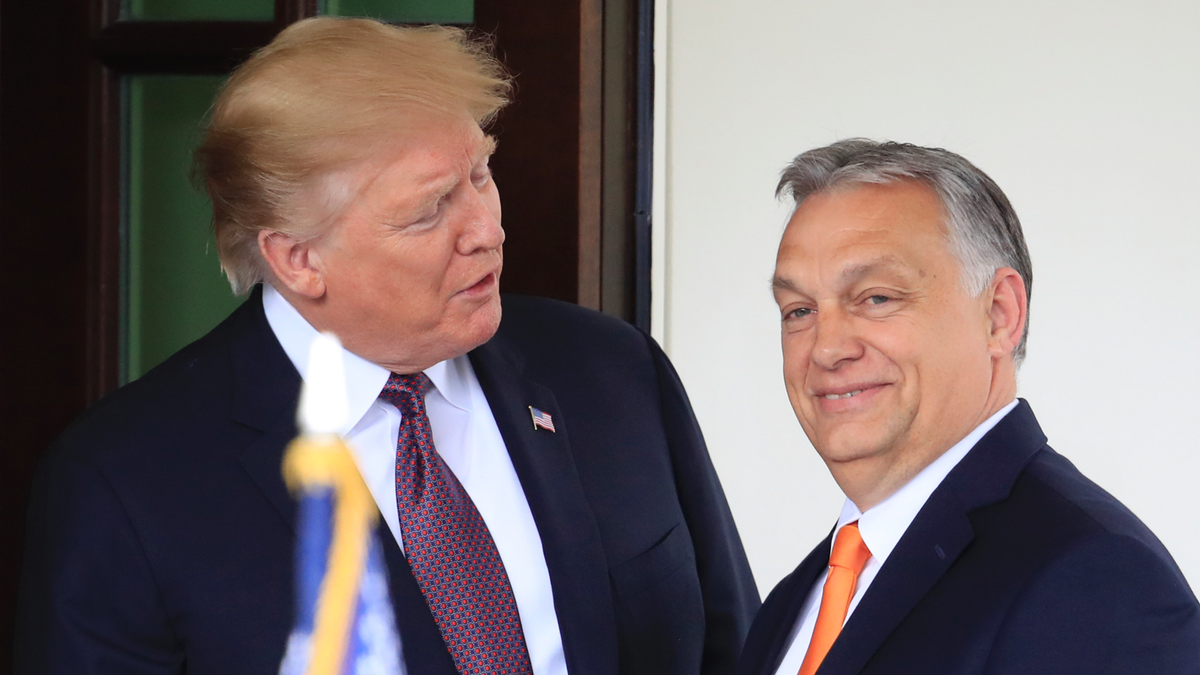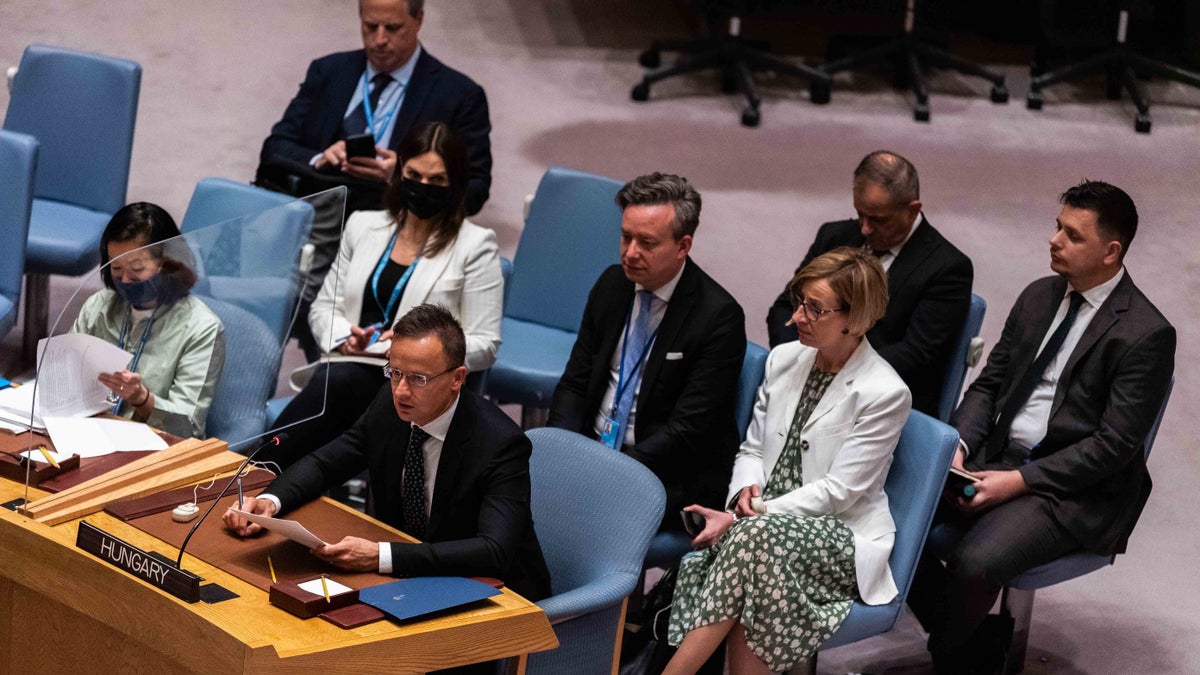Hungary's foreign minister says US-Hungary relationship 'downgraded' by Biden administration
Hungary's top diplomat spoke exclusively to Fox News Digital.
UNITED NATIONS – Hungarian Foreign Minister Peter Szijjarto told Fox News Digital this week that there's no high-level relationship in place with the Biden administration.
Szijjarto was in New York City for a United Nations Security Council meeting on Thursday, hosted by Secretary of State Antony Blinken. He defended his country's stance on Ukraine and indicated his country was very positive on Sweden and Finland's joining NATO.
During the Trump administration, Hungary enjoyed a strong relationship with the U.S., but now the NATO and European Union member has found itself on the outs with the Biden administration. "There's no high-level relationship, to be honest... since President Biden entered office, the former regular contacts have unfortunately been cut, we never had a real substantial bilateral meeting with Secretary Blinken either," Szijjarto said during an interview at the United Nations. "I see there's no interest on behalf of the U.S. administration on that."
However, even with the less-than-perfect relationship, he said the military and economic relationship between the U.S. and Hungary was still strong, albeit "downgraded by the current administration."
A former communist-bloc country, Hungary joined NATO in 1999 and has been an active member ever since. Szijjarto said his country understood the importance of Turkey's role in NATO and made it clear that Sweden and Finland needed to take the Turks' concerns seriously.

President Donald Trump welcomes Hungarian Prime Minister Viktor Orban to the White House on May 13, 2019. (AP Photo/Manuel Balce Ceneta, File)
FINLAND, SWEDEN FILE OFFICIAL APPLICATIONS TO JOIN NATO
"I think that there should be cross responsibility for both the Swedish and the Finnish colleagues, and friends of ours to take seriously into consideration all the very sensitive remarks which were made by the Turkish, because without Turkish consent, they will not be able to join."
Hungary, which is about the size of Virginia and borders Ukraine and several other countries in Central Europe, has faced criticism for not allowing lethal weapons to transit through the country to Ukraine, as well as holding out over a European Union oil ban on Russia. Critics have said that the country's conservative Prime Minister Viktor Orban has been doing the bidding of Russian President Vladimir Putin. Szijjarto took issue with that.
CZECH REPUBLIC IN TALKS ON EU OIL EMBARGO EXEMPTION, PM SAYS
"I reject this accusation: Hungary stands for Ukraine, that's not a question. We condemn the Russian aggression against Ukraine and we stand for the Ukrainian friends of ours, and we help them in many ways. We have received (700,000) refugees so far. We have sent almost 200,000 tons of humanitarian aid," he said. "And the reason we do not allow weapons (to) transit through Hungary is that for us, still the number one issue is the security of Hungary and the Hungarian people."

Hungary's top diplomat, Péter Szijjártó, addressing a U.N. Security Council debate on May 19, 2022. (Matyas Borsos/Hungarian Mission to the United Nations)
He noted that Hungarian communities have lived on the Ukraine side of the border for over four centuries, and Hungary didn't want Russia to target those communities.
And, as Hungary is accused of holding up a full EU ban on Russian oil, Szijjarto stated his country has gone along with sanctions but noted that the pipeline deal was not acceptable. "The European Commission has proposed six packages of sanctions already, five packages have been voted by all of us, by Hungary as well, all five. Now the sixth package creates huge problems for us."
Illustrating the dilemma, he said 65% of his country's oil supply has come from Russia.
"If we are cut off from Russian oil, physically it's impossible to buy enough oil from any other sources in order to operate our country, our economy. So, our economy will be killed without Russian gas, not to speak about the fact that in order to technologically transform the refinery of ours in order to be able to refine other types of gas and oil than Russian, then we will need another 550-million-Euro investment." He said the total investment could be close to $1 billion.
He noted Hungary has a solution to the problem and awaited an answer from the European Union and its members. "If the European Union... would like to punish Russia on the oil side, then introduce an embargo on maritime deliveries of oil, because that represents by far the biggest part of Russian oil deliveries to Europe, because pipeline deliveries are in a minority, and if you give an exemption to pipeline deliveries, then our economies can continue to operate, and then the European Union would reach its goal as well."
CLICK HERE TO DOWNLOAD FOX NEWS APP
Szijjarto said the ball was in the EU's court. "We'll see whether the other member states, whether the commission, whether the high representative will agree with this proposal of ours."
By the time Hungary's top diplomat started his speech at the U.N Security Council, Thursday afternoon, Blinken had left the room – the two did not meet.


